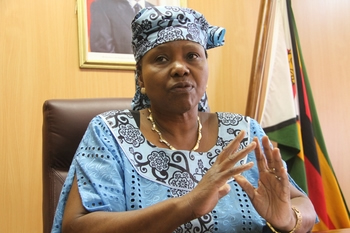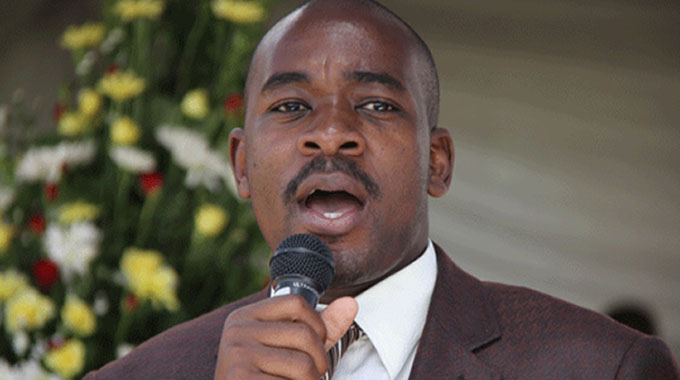When corruption becomes a way of life

Elliot Ziwira @the Bookstore
A vice that has besotted humanity since time immemorial, corruption is a cancer that has the capacity to eat into the core of national ethos if allowed to persist.
The Bible condemns the vice in Isaiah 1v4 where it says: “Ah, sinful nation; a people laden with iniquity, offspring of evildoers, sons who deal corruptly. They have forsaken the Holy One of Israel; they are utterly estranged.”
Indeed, gentle reader, those who deal corruptly will never find favour with the Lord. Ask yourself if you haven’t been dealing corruptly of late!
William Shakespeare also decries in “Hamlet” that: “Something is rotten in the state of Denmark.” Could something also be rotten in the State of Zimbabwe?
Corruption is calamitous because it creates acrimony among siblings, friends and loved ones, leading to anger, irritation, poverty, despondency and frustration. This is primarily so because resources are not distributed equally as often a minority elite benefits at the expense of the majority. Government, which is the biggest loser, finds itself grappling to make ends meet as revenue that it is supposed to tap into miraculously disappears into the pockets of individuals.
According to Transparency International, more than a quarter of the people worldwide, at one time or another, pay a bribe when dealing with public service providers with the Police being the major culprit. If annual global loss through corruption is about $324 billion, how much do we lose as a nation to individuals? Yes, corruption is not a new phenomenon and the fact that it is rampant throughout the world is no excuse to condone or sugarcoat it over. It is the devil incarnate and should be nipped in the bud before it brings our country on all fours.
Chenjerai Hove notes in “Palaver Finish” (2002): “The decay of the body begins with a small part of it.” Corruption, therefore, should not be measured in terms of proportionality, no; corruption remains corruption.
If a small cancerous part is not removed in the nick of time, it will eat into the whole body and when that occurs it may be too late to undo it.
Corruption is like a venomous snake with a tail, body and head. Cutting out the tail may not destroy it and hitting it on the back will only incapacitate its movement, but it will not destroy the venomous head, which will still strike any unsuspecting target with so much vigour and ruthlessness. In such instances hitting the head will suffice.
As a vice with the capacity to run down a country, corruption is condemned with the contempt it deserves in literary texts the world over. It is rare to read a book that doesn’t allude to the evils nature of corruption at the personal, familial, communal and national platforms.
“Writing Still” (2003), edited by Irene Staunton, is contemptuous of corruption, especially in Shimmer Chinodya’s “Queues”, Clement Chihota’s “The Kiss” and Brian Chikwava’s “Seventh Street Alchemy”.
In “The Kiss”, Chihota lambasts the tendency by individuals to line their pockets at the expense of the nation using military or political muscles. It is the story of Hofisi; a shrewd and unscrupulous dealer who “sells anything” to make a quick buck. To out manoeuvre the security system at the Harare International Airport, he uses his beautiful wife Majaira as a decoy to get a diamond from Mike, his counterpart from the DRC, through a kiss – a deep and passionate one.
When asked by his wife why he has to use her instead of any other woman, he tells her that even though “at least four immigration people are in on the deal”, he has to avoid taking chances because, “the diamond you are receiving has passed through the pockets of army generals and the briefcases of ministers of state . . . High up guys (who) hate risks because they have a long way to fall in the event that something makes them slip” and he does “not want to be that something”.
Such avarice which makes one throw caution to the wind and morality to the dogs is as deplorable as it is destructive. Although Hofisi inevitably loses his wife to Mike as a result of that passionate moment, he does not seem moved by it which shows the extent of his moral bankruptcy and how low he has sunk as an individual.
The fact that he protects people in high places and does not want to expose them by being “that something” that derails their gravy train is tantamount to treason as he sides with the strong against the weak and vulnerable, who suffer as a result of the same rot that he benefits from and protects.
In “Seventh Street Alchemy”, Brian Chikwava takes a swipe at corruption in the Police and other Government departments like the Registrar-General’s Office. He explores the tribulations of a 50-year-old harlot, Fiso, who finds herself in the trade because of her lack of basic documents like a birth certificate and a national ID. As events play out she is considered non-existent because, according to the law, she was never born, yet she has to be arrested for daring the Registrar-General for being corrupt. Ironically, it becomes easier for her to get documents, because she has to face the law.
Chikwava also pokes at the rot in the Police as he examines how trivial issues are given prominence because of their lucrative nature. He exposes this vice through two officers who engage themselves in cajoling a “young musician to part with some of his dollars for having gone through red traffic lights”, ignoring a street urchin, who is fatally hit by “an offending” motorist who hands over a “handful of notes to pacify” them and he his let free.
When challenged by Anna to help the kid they say: “We are off duty now, madam, call Central Police Station”.
Though artistes play their part in exposing this scourge known as corruption, we as Zimbabweans should also play our part. The world, like what Shakespeare once said, “is a stage where every man must play a part”. Gentle reader, what part have you played as a citizen or what role do you intend to partake in the war against corruption? Let us all be challenged by Martin Luther King Jnr, who observed that: “The greatest tragedy of our time is not the few who have destroyed, but the vast majority who have sat idly by.”
The Police are corrupt, yes, and civil servants are corrupt, it is true; but who really is responsible for fuelling that corruption? The Government! You may say, because of the pittance it gives them as salaries. And all those other Zimbabweans, who are wallowing in abject poverty and earning far less than them, who will cushion them- who will mitigate their suffering? No, the Government is not entirely responsible. We Zimbabweans are responsible for our own suffering because we offer them bribes and we do not give a hoot about others.
It may only be $5 or $10 today but tomorrow it will be $500, $1 000, $10 000 or $10 million. It is not the amount that you give that matters, it is the idea that is deplorable. You are no better than a robber that robs a man of his entire takings at gunpoint, condemning his family to crumbs.
If the Government plays its part by improving working conditions of its workers, decongesting public service departments and creating opportunities for whistle-blowers through necessary legislation, and we all play ours, then corruption at all levels will be mitigated without fear or favour so that our beautiful country cannot always be in the limelight for all the wrong reasons.
But this can only happen if action is put where the mouth is; shunning individualism and avarice – the hallmarks of corruption, knowing that there are no sacred cows in nation building – All animals are equal; and the time to do it is now.
It is time really that the flower buds are seen on the fruit trees of Eden because, as espoused by Baltasar Gracion, “all that belongs to us is time; even he who has nothing else has that”. Hence, the custodians of our time as a nation should not let us down by watching it ticking away without doing anything about it. More action, less talk is the way to go.










Comments